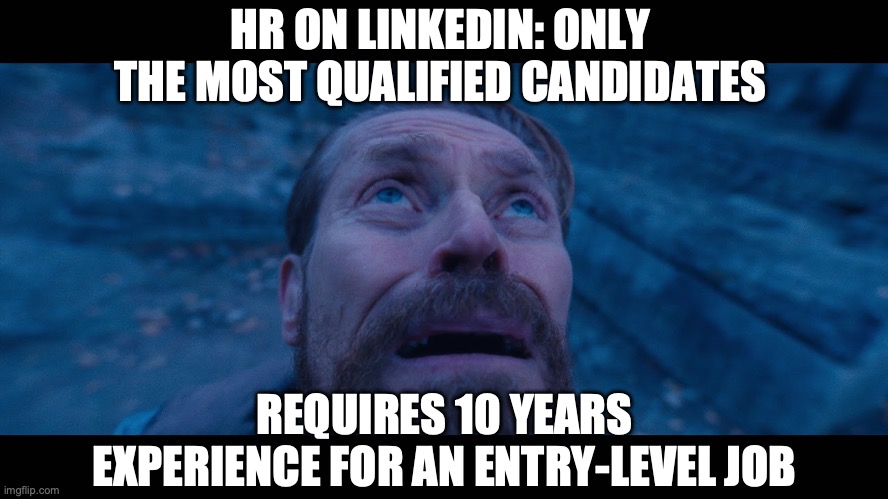Can't Find a Job on LinkedIn? Get in Line

In today’s hyper-competitive job market, finding a job on LinkedIn can feel like searching for a needle in a digital haystack. With millions of users, standing out seems almost impossible.
Personally, LinkedIn has never helped me get a job. Every opportunity I’ve had came through my network. And I’m not the only one. In my senior year, a friend of mine applied to over 500 companies in 3 months. He got 3 interviews and zero offers. Does that mean he’s bad at what he does? I don’t think so. Some of those companies probably hire interns at least. The problem runs deeper.
There are three main application types on LinkedIn:
- Quick apply (no questions)
- Quick apply with questions
- External applications
I don’t have hard data, but my guess is that external applications get the fewest clicks. Why? Because they have too many steps. First, you click “Apply”, it opens a new tab, and you have to fill out a form, often duplicating the info already on your LinkedIn profile. People just bounce.
If you make people click less, they’ll click more.
Quick apply (no questions) gets the most clicks. It’s fast, two or three buttons and you’re done. But the faster it is, the more competition you face.
Personally, I think the sweet spot is quick apply with questions. These might include things like “What’s your salary expectation?” or “Do you need visa sponsorship?” I assume LinkedIn applies filters to these automatically. If you enter $120,000 and they’ve set a filter at $80k, you’re probably out instantly.
From a company’s perspective, this method is the most efficient. It doesn’t flood them with low-effort applications, but still gets solid volume. It sits right in the middle of the funnel where quality meets quantity.
HR Problem
But LinkedIn application types aren’t the only problem. But the real problem is recruiters.
Some recruiters don’t even understand the roles they’re hiring for. I’ve seen listings where the entire IT department was pasted into the requirements.
Being an “Enayi”
There’s a word in Turkish: “enayi.” It roughly means “someone who accepts worse conditions than they should.”
In tech, that word hits hard. The competition is fierce, and it’s tempting to say yes to anything, even if it’s underpaid or unfair.
You might think, “Well, it’s a start, right?” But when you accept a bad offer, it doesn’t just affect you. It sets a lower bar for everyone else too.
Standing up for yourself helps everyone. Better pay, better standards, and less exploitation. That’s how we raise the baseline.
Stop Taking What You’re Given
If we keep accepting offers that undervalue our skills, that becomes the new normal.
Be bold. Not just for your own career, but for the people coming after you.
Set the standard you want to see.
You don’t want to get paid 15.000 ₺ (around $500) per month as a React Native developer with 2 years of experience, do you?